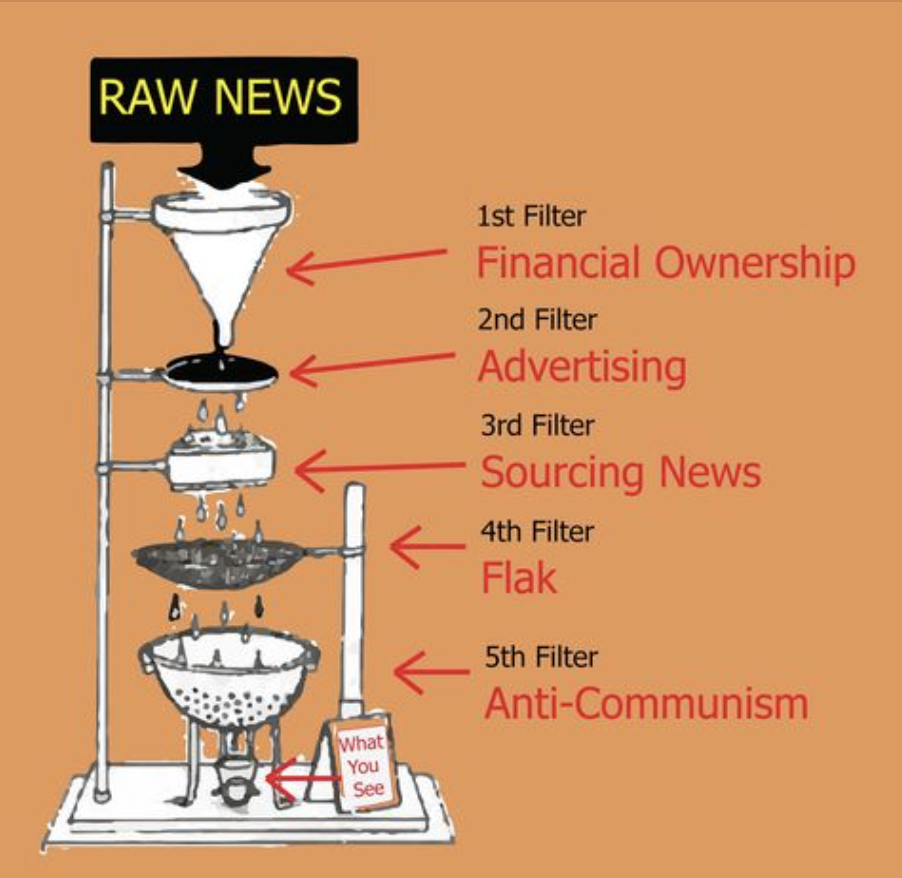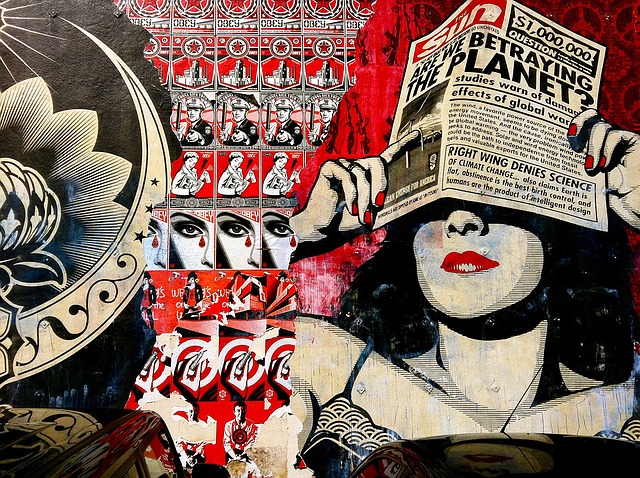In 1988 Noah Chomsky co-authored a book with Edward Herman called Manufacturing consent. The idea of “manufacturing consent” claims that influential groups, such as the government, the media, and businesses, purposefully influence public opinion by manipulating the stories that are spread through mass media, skewing public views, and promoting particular agendas. Chomsky argues that with an unequal division of wealth and power comes with a wildly uneven distribution of stories that favours the upper class. Though you may jump to hate on the news outlets, they are most likely servants of the elite being influenced to focus on stories they want because of the cost for advertising revenue.

Chomsky and Herman articulated a propaganda model that describes how the media works in 5 filters. The first filter is media ownership, mass media firms have big powerful corporations who have connections to other corporations at the tip of their fingers. Media outlets may give preference to viewpoints or news that support their owners’ business objectives, which is financial gain. For example, coverage of any industries, political issues, or economic policies may be presented in a way that benefits the corporate entities involved if it guarantees profit, even if the truth is altered.
The second filter is advertising money. Media costs more than consumers could ever pay, so media outlets depend on advertisers to pay for their needs. Advertisers use this opportunity to scope you into their market, even if you don’t buy in, you’re not subconsciously aware of their existence. This gives advertisers a lot of power and influence over the general population, leaving journalists to 2nd place of importance.
The third filter is about how the establishment manage the media and source news. Media outlets rely on news sources, many of which are public officials, business executives, or other influential people. Reliance on these kinds of sources might lead to a skewed story that supports the interests of the powerful.
When the media-journalists, whistleblowers etc, stray away from the consensus they get ‘FLAK’, the fourth filter. If these individuals or groups involved in the media speak out against these media outlets with power that is inconvenient for the ones in power they will face criticism in many ways. They can do this in multiple ways by discrediting the stories, trashing stories and creating distractions for the general viewers. Media organisations may be reluctant to contradict prevailing narratives because they are afraid of the unfavourable effects of pursuing certain stories or opinions.
The last filter is anti-communism, aka a common enemy. Having a common enemy, whether it be terrorists, communists, immigrants is a way to gather the general population. Having power over the media coverage can sway the population towards a specific enemy.
This concept is very important today in a digital world where everything can be faked or staged, it highlights the importance of being more independent and less naive towards the propaganda the mass media feeds us. Chomsky and Herman have provided a crucial framework for comprehending the intricate processes that influence information distribution in the modern world is provided by applying the manufacturing consent concept to instances of media and communication from today’s world, thanks to this we can educate ourselves more independently and be more vigilant to corruption in the media.
References:
https://en.wikipedia.org/wiki/Edward_Herrmann

